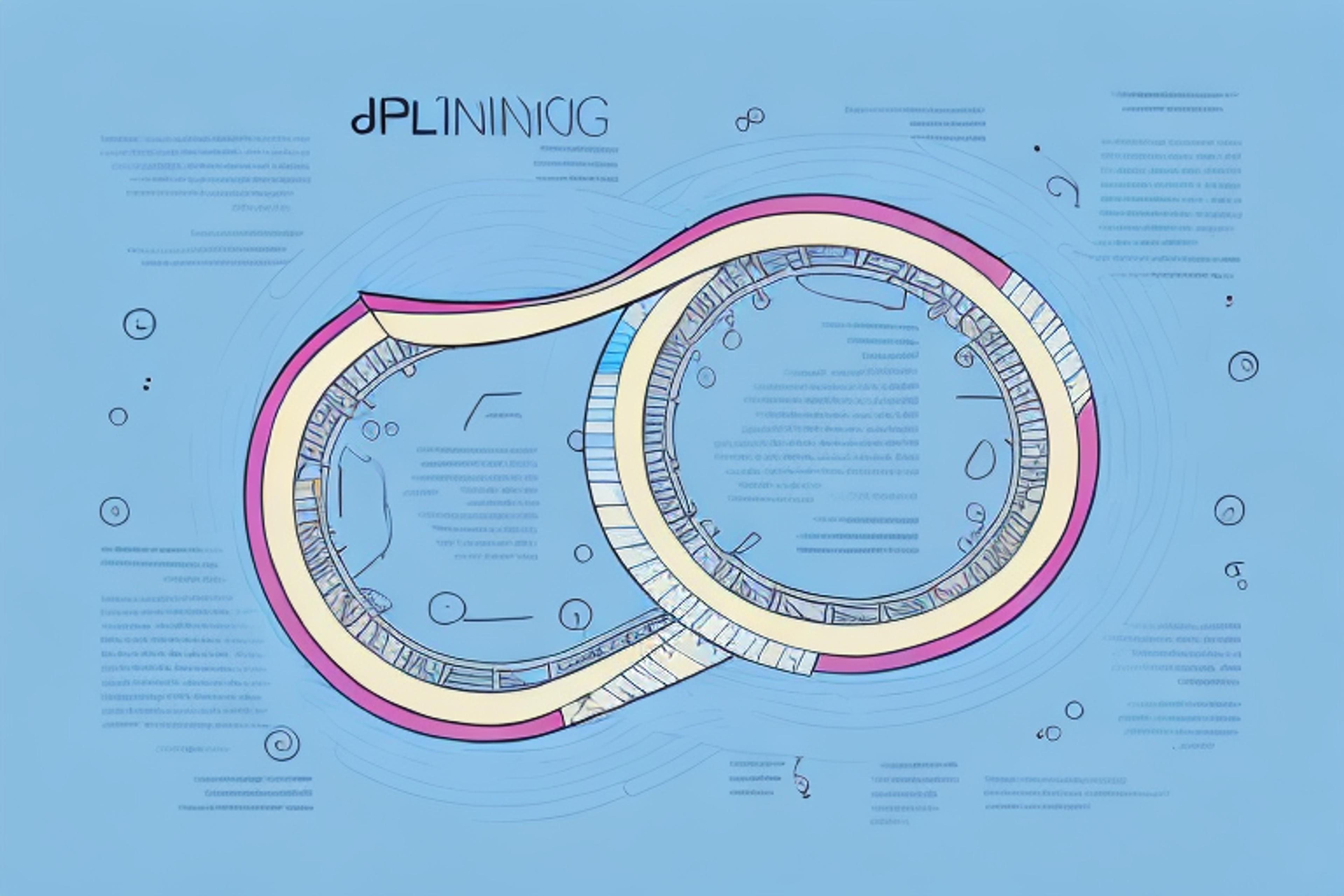Navigating Your Career: The Life of a Life Science Consultant
Discover the ins and outs of a career in life science consulting with our comprehensive guide.
Posted March 6, 2025

Table of Contents
As a science major in college, you spend years studying chemistry, biology, and other related subjects in preparation for a career in the life sciences. While some graduates choose careers in research or academia, others opt for more non-traditional paths in industries such as management consulting. This article explores one of these alternative careers in-depth: life science consulting. Here, we will discuss what life science consulting entails, qualifications and skills required for the profession, roles and responsibilities of a consultant, key challenges faced on the job, how to build a successful career in life science consulting, advantages and disadvantages of working in this field, client management techniques, trends and innovations in life science consulting, networking best practices, personal branding strategies, work-life balance, future outlook of the industry, and case studies of successful projects led by life science consultants.
Introduction to Life Science Consulting
Life science consulting is a field that provides advice and expertise to life science businesses, such as pharmaceutical and biotech companies, on a wide range of issues. Life science consulting is a niche field that requires specialized knowledge, so a strong background in science, as well as business management, is necessary.
Life science consulting firms offer a variety of services, including market research, product development, regulatory compliance, and strategic planning. They work closely with their clients to understand their needs and provide customized solutions to help them achieve their goals. Life science consultants must stay up-to-date with the latest industry trends and regulations, and possess strong analytical and problem-solving skills to effectively address complex challenges.
Qualifications and Skills Required for a Life Science Consultant
Typically, a life science consultant has a degree in a scientific field, such as biology, chemistry, medicine, or pharmacology. However, some consultants may also have graduate business degrees or experience in management consulting. Another essential skill for a life science consultant is the ability to analyze data, as they often work with data analysis to help clients make informed decisions.
In addition to having a strong scientific background and data analysis skills, a life science consultant must also possess excellent communication and interpersonal skills. They must be able to effectively communicate complex scientific concepts to clients who may not have a scientific background. Additionally, they must be able to work collaboratively with clients and team members to develop and implement solutions to complex problems. A successful life science consultant must also be adaptable and able to quickly learn and apply new information in a constantly evolving industry.
Roles and Responsibilities of a Life Science Consultant
A life science consultant wears many hats. They help clients identify business opportunities and challenges, develop and implement strategies, providing expert advice on scientific and regulatory issues, and provide insights on market trends.
One of the key responsibilities of a life science consultant is to stay up-to-date with the latest developments in the industry. This includes keeping track of new technologies, emerging trends, and changes in regulations. By staying informed, consultants can provide their clients with the most relevant and accurate advice possible.
Another important aspect of the role is building and maintaining relationships with clients. This involves understanding their needs and goals, communicating effectively, and providing ongoing support and guidance. Consultants must be able to work collaboratively with clients and other stakeholders to achieve the best possible outcomes.
Key Challenges Faced by Life Science Consultants
One of the challenges a life science consultant faces is keeping up with the dynamic nature of the field and staying ahead of trends. Life science consulting also often requires long hours and travel, so it can be difficult to achieve work-life balance.
Another challenge faced by life science consultants is the need to constantly adapt to new technologies and regulations. With advancements in technology and changes in regulations, consultants must stay up-to-date with the latest developments in order to provide the best advice to their clients. This requires a significant amount of time and effort to research and understand these changes.
How to Build a Successful Career in Life Science Consulting
To build a successful career as a life science consultant, it is important to gain experience through internships or entry-level positions in the life sciences industry. Networking with colleagues and industry professionals is also critical, as is continuing education and keeping up with industry trends and developments.
Another important aspect of building a successful career in life science consulting is developing strong communication and interpersonal skills. As a consultant, you will be working with clients from various backgrounds and levels of expertise, so being able to effectively communicate complex scientific concepts is essential.
In addition, it is important to have a strong understanding of business and finance, as life science consulting often involves advising clients on financial and strategic decisions. Taking courses or obtaining a degree in business or finance can be beneficial for those looking to pursue a career in this field.
Advantages and Disadvantages of Working as a Life Science Consultant
One of the primary advantages of working as a life science consultant is the opportunity to apply scientific knowledge to solve business problems. Life science consulting also offers lucrative compensation and a dynamic and exciting work environment. However, it can also be demanding and require extensive travel, which can affect work-life balance.
Another advantage of working as a life science consultant is the opportunity to work with a diverse range of clients and projects. This allows consultants to gain exposure to different industries and develop a broad skill set. Additionally, life science consulting firms often provide extensive training and development programs to help consultants grow and advance in their careers.
On the other hand, one of the main disadvantages of working as a life science consultant is the high-pressure work environment. Consultants are often expected to deliver results quickly and efficiently, which can lead to long hours and high stress levels. Furthermore, the nature of consulting work means that projects can be unpredictable and require consultants to adapt to changing circumstances on short notice.
Client Management Techniques for Life Science Consultants
Effective client management is crucial for a life science consultant, as they must work closely with clients to understand their needs and develop solutions that meet their needs. It is important to communicate frequently, manage expectations, and provide regular updates throughout the project to ensure the client is satisfied and that the project is progressing in the right direction.
In addition to regular communication and updates, it is also important for life science consultants to actively listen to their clients. By listening to their concerns and feedback, consultants can better understand their needs and tailor their solutions accordingly. It is also important to establish clear goals and timelines at the beginning of the project, and to regularly assess progress towards these goals to ensure that the project stays on track. By implementing these client management techniques, life science consultants can build strong relationships with their clients and deliver successful projects.
Trends and Innovations in the Life Science Consulting Industry
The life science consulting industry is always evolving. Some of the latest trends include the use of artificial intelligence and machine learning algorithms to analyze data, personalized medicine, and the application of blockchain technology to the pharmaceutical supply chain.
Another trend in the life science consulting industry is the increasing focus on patient-centricity. This means that companies are placing a greater emphasis on understanding the needs and preferences of patients, and incorporating their feedback into the development of new products and services. Additionally, there is a growing interest in the use of virtual and augmented reality technologies to enhance patient engagement and education.
Another area of innovation in the life science consulting industry is the development of new drug delivery systems. This includes the use of nanotechnology to create targeted drug delivery systems, as well as the development of implantable devices that can deliver drugs over an extended period of time. These new delivery systems have the potential to improve patient outcomes and reduce healthcare costs by increasing the effectiveness of treatments and reducing the need for frequent dosing.
Best Practices for Networking in the Life Science Consulting Industry
Networking is essential for building a successful career in life science consulting. Attending industry events, reaching out to alumni, and connecting with colleagues on LinkedIn are all useful ways to make valuable professional connections in this industry.
Another effective way to network in the life science consulting industry is to join professional organizations and attend their events. These organizations provide opportunities to meet and connect with industry leaders, as well as access to valuable resources and information. Some popular organizations in this industry include the Healthcare Businesswomen's Association, the Association of Clinical Research Professionals, and the Drug Information Association.
In addition to attending events and joining organizations, it's important to maintain and nurture your professional relationships. This can be done by regularly following up with contacts, sharing relevant industry news and insights, and offering to help in any way possible. By staying engaged and building strong relationships, you can establish yourself as a valuable member of the life science consulting community and open up new opportunities for career growth and advancement.
Building Your Personal Brand as a Life Science Consultant
Building a personal brand as a life science consultant is crucial for establishing credibility and gaining new clients. Developing unique skills and expertise, regularly publishing thought leadership articles, and speaking at industry events can all help establish a consultant's personal brand.
Balancing Work-Life as a Life Science Consultant
Balancing work and life as a life science consultant can be challenging. Many consultants travel frequently, which can make it difficult to maintain a work-life balance. Finding ways to manage stress, such as participating in extracurricular activities or seeking mentorship, can help manage work-life balance.
Future Outlook of the Life Science Consulting Industry
The life science consulting industry is rapidly growing, and the demand for experienced consultants is high. The top-five consulting firms in the industry include McKinsey & Company, Bain & Company, Boston Consulting Group, Accenture, and Deloitte. Opportunities for growth and advancement are abundant, and the industry is projected to continue growing over the next decade.
Comparison of Different Career Paths within the Life Sciences Industry
There are many career paths within the life sciences industry. Compared to a career in academia or research, life science consulting provides exposure to many different aspects of the industry and requires a unique set of skills. It also offers potentially higher compensation and a more dynamic work environment compared to traditional career paths.
Case Studies: Successful Projects Led by Life Science Consultants
Life science consultants are involved in a wide range of projects that impact the industry. For example, consultants at a major consulting firm helped a large pharmaceutical company conduct research to identify unmet patient needs. Another consulting group assisted with launch strategy for a new drug, presenting a plan for market entry and implementation.
In summary, life science consulting is a unique and demanding career path that combines expertise in science and business. It offers diverse opportunities for growth and advancement in an industry that is constantly evolving. While the profession comes with its own set of challenges, with the right skills, qualifications, and mindset, it is possible to build a successful and fulfilling career as a life science consultant.



















